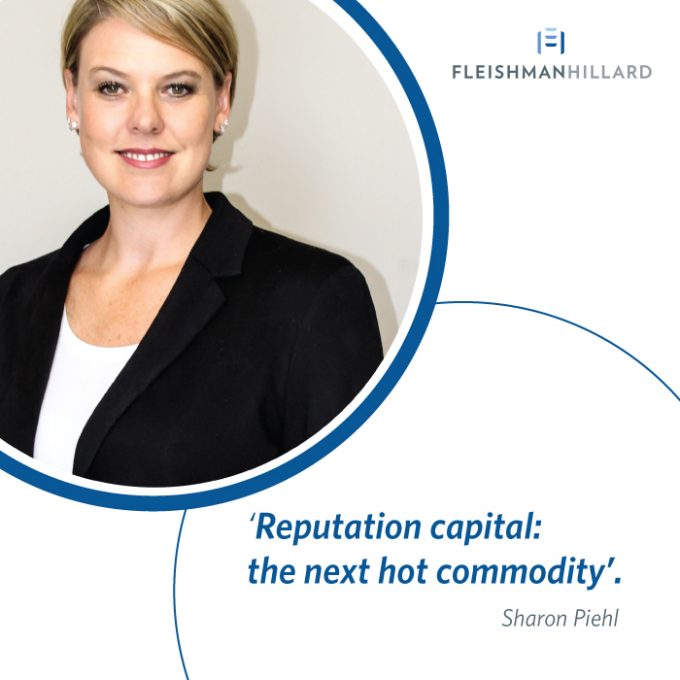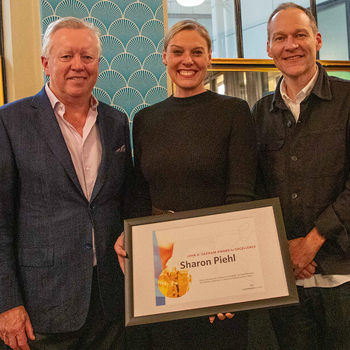Reputation capital: the next hot commodity
With a business environment that is becoming ever more competitive and characterised by constant change and often unforeseen threats, corporate executives are increasingly recognising the intrinsic value of reputation capital.

Understanding reputation capital and investing in it has become an absolutely critical commodity to any business. Reputation has become aligned with the bottom line and business leaders are taking an uncompromising view on who they are, what they stand for and ultimately how they impact society more positively.
Shared value has come to describe the intertwining of business success and investment into growing the communities that the business operates in and sources talent from. It has become more than a just a recommended way to approach to doing business in the past few years; for many companies, it is part of the very fabric of their operations.
Navigating the world of public perception
But even with this increased awareness of the need to be responsible corporate citizens and a growing commitment to improving their contribution to society, navigating the school of public opinion can be a minefield.
Looking at the headlines on any given day reveals a slew of corporates failing in the eyes of their customers and the broader community and tone-deaf ads or graft scandals can see an organisation’s reputation in tatters quickly.
Driving this is the continued growth of digital and social media as a means of consuming news because the technology and platforms allow people to share the information and their opinions in real time, meaning the spread of negative coverage can all too soon become a tsunami.
The SA Social Media Landscape 2018 study found that the number of South Africans using Facebook alone has risen by 14% since 2016, from 14-million to 16-million. Of these, 14-million were accessing the social network on mobile devices.
Carving out a niche at the boardroom table
The ability to effectively manage the public perceptions and reputations of companies in this fast-moving landscape has therefore become vital – and this is where public relations can prove its mettle at the boardroom table.
PR has the power to help business leaders manage the reputations of the organisations they steer by combining art and science: using knowledge of the business and media landscape and carefully cultivated relationships with media practitioners mixed with the right tools, insights and innovation, means communications specialists are able to guide executives on how best to invest in, manage and protect their reputations long-term.
In a world where social, economic and political uncertainty are only going to become more of a daily reality, these skills are going to become highly sought after. Forward-looking agencies have seen this coming for a number of years, and have been preparing by diversifying the skillsets of their people and investing in creating more integrated agencies.
Going forward, agencies are going to have to work harder to prove that they deserve that spot around the table – so communications specialists are going to have to illustrate tangibly that they can help business leaders not just manage their reputations but drive positive change and create meaningful shared value.
-

As general manager of FleishmanHillard’s Johannesburg office, Sharon Piehl provides clients with counsel in many areas. With over 20 years’ experience in the communications industry, she has served as both the lead of the brand marketing portfolio in the Johannesburg...
Find Out More
-
Digital Insights Bulletin - October 2024
October 31, 2024
-
Sharon Piehl Wins 32nd Annual John D. Graham Award for Excellence
October 25, 2024
-
Digital Insights Bulletin - September 2024
September 30, 2024


